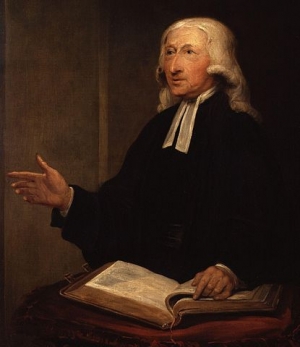Afficher les éléments par tag : Wesley
The Early Methodist Revival from a Discourse Perspective
In a number of twentieth-century critiques of Methodism (and notably in E.P. Thompson’s Making of the English Working Class), John Wesley’s discourse has been represented as an instrument in the conversion of the factory proletariat to the industrial work ethic, symptomatic of an emerging ideological paradigm heavily conditioned by the demands of increasing industrialization. While the data adopted as evidence by the critics are authentic, an analysis of the discourse in context reveals that not only have the instances of Methodist discourse been selected and combined to tie in with a particular reading of reality – religion as the opiate of the people – but also that the value judgment fostered by this partial representation has been applied indiscriminately to Methodism as a whole, with blatant disregard for the positive transforming power it exerted both on individuals and on society.
Informations supplémentaires
- Auteur Jean Pierre van Noppen






 MangoGem
MangoGem